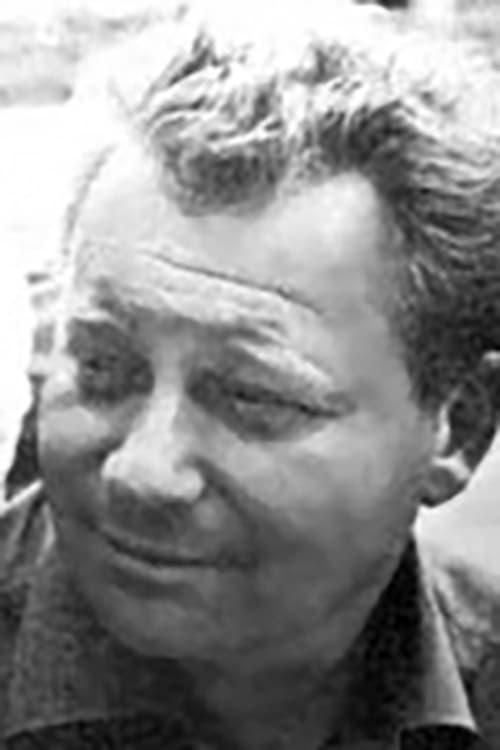
Ghislain Cloquet
Birth : 1924-04-18, Antwerp, Flanders, Belgium
Death : 1981-11-02
History
Ghislain Cloquet (18 April 1924 – 2 November 1981) was a Belgian-born French cinematographer. Cloquet was born in Antwerp, Belgium in 1924. He went to Paris to study and became a French citizen in 1940.
Cloquet is known for his work with Robert Bresson, though he also collaborated with Claude Sautet, Jacques Demy, André Delvaux, Chris Marker, and Marguerite Duras. He shot Jacques Becker's last film, Le Trou, and then worked several times with Becker's son Jean, who was also Cloquet's brother-in-law. He also worked with several non-French directors, including Woody Allen (Love and Death), Arthur Penn (Four Friends) and, most notably, Roman Polanski, winning an Oscar (on his first nomination) for his work on Polanski's Tess, which he completed after the death of Geoffrey Unsworth.
Cloquet married into the Becker filmmaking family (which included directors Jacques and Jean, cinematographer Étienne, and actress Françoise Fabian), when he wed Jacques Becker's daughter Sophie, then a script girl.
Source: Article "Ghislain Cloquet" from Wikipedia in English, licensed under CC-BY-SA 3.0.
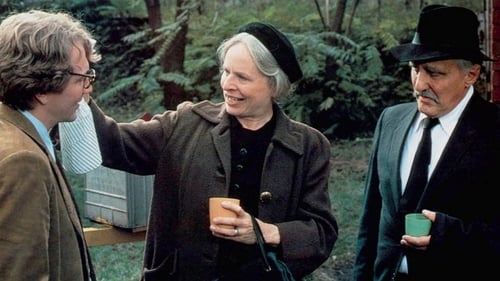
Director of Photography
A young immigrant comes to America in the 60s and is caught up in the counterculture movement which tests his bonds of friendship and love.
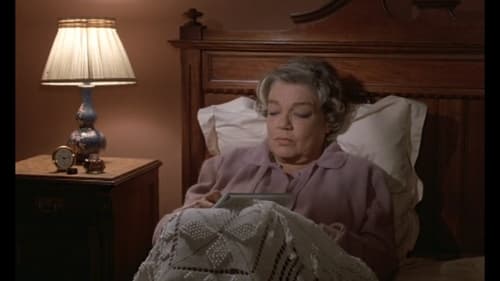
Director of Photography
A middle-aged disabled man unknowingly begins a lonely hearts correspondence with his own unmarried sister, who takes care of him. As he writes more and more to her, he begins to fall in love, and she, knowing that it is her brother who is writing, discovers a new, tender side to him. But trouble looms when he asks to meet her in person.
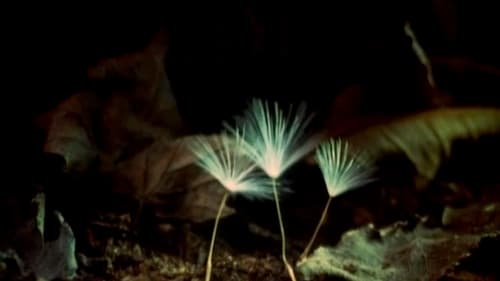
Director of Photography
A documentary about the study of plant sentience with original music by Stevie Wonder. Utilizing time-lapse photography, the film proposes that plants are able to experience emotions and communicate with the world around them.
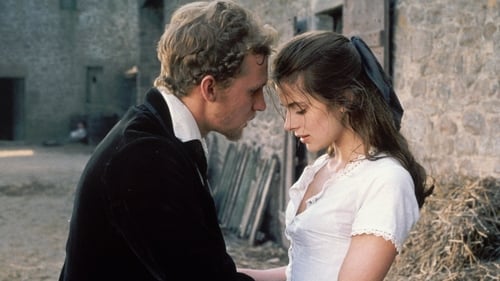
Director of Photography
A strong-willed peasant girl is sent by her father to the estate of some local aristocrats to capitalize on a rumor that their families are from the same line, but is left traumatised from her experiences.

Self
Woody Allen's interview with France Roche.

Director of Photography
In this poetic slice-of-life film that reveals the problems and needs of a group of lowlife characters, unwed mother Vivaine (Dominique Labourier) falls in love with working-class youth Francois (Patrick Chesnais) who has a shady past. Albert (Philippe Noiret), a no-good insurance con-artist, poses for many years as Francois' friend, but tragedy ensues when Albert comes between the lovers, and Francois and Albert resort to physical violence to settle their differences.

Director of Photography
In czarist Russia, a neurotic soldier and his distant cousin formulate a plot to assassinate Napoleon.
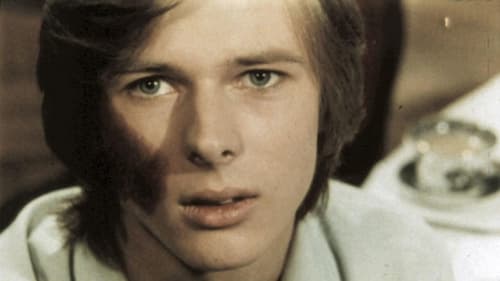
Director of Photography
The action begins in black and white, like a memory. Klaus is a Nazi military who has just failed an attempt on Hitler. Desperate, Klaus shoots and kills his children and then shoots at his pregnant wife and leaves her badly injured. Finally, attempts suicide, but at the last moment does not have the courage to pull the trigger, and flees on a motorcycle, having an accident ... The action continues in France. Jean-Claude is a handsome young man self-conscious about a malformation in his face. Jean-Claude lives with his parents, Jacques Bergé, an amnesiac man, self-enclosed and obsessed with Egyptian art, and Concepcion, a woman also closed in herself and obsessed with flowers from her garden, and apparently , suffering from paranoia.
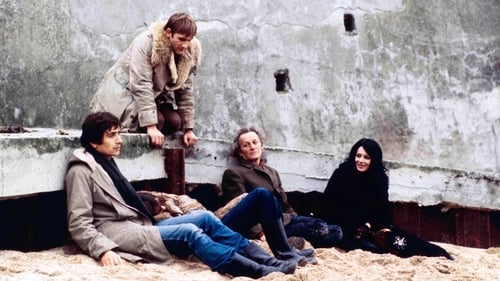
Director of Photography
A man returns to the place he once lived a passionate love affair with a woman who is now dead. So powerful are the emotions that seize him that he imagines she is still alive, and begins to live as if this were the case...
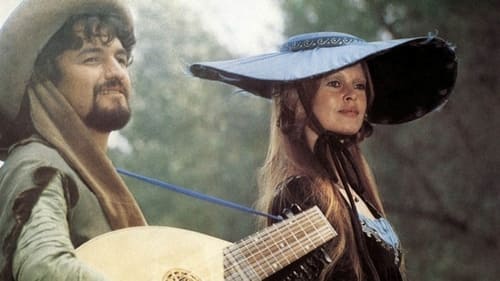
Director of Photography
Colinot's world is turned upside down when his fiancee is kidnapped.

With little or no embellishment, filmmaker Marguerite Duras offers a simple, often wordless chronicle of a woman's day. She and her friend are seen doing yard work, talking about their families and receiving the occasional visitor. The brightest spot in the day is when a washing machine salesman comes to call.

Director of Photography
With little or no embellishment, filmmaker Marguerite Duras offers a simple, often wordless chronicle of a woman's day. She and her friend are seen doing yard work, talking about their families and receiving the occasional visitor. The brightest spot in the day is when a washing machine salesman comes to call.
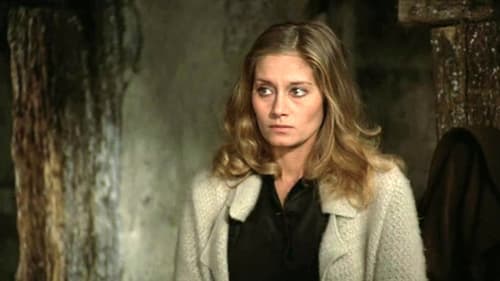
Director of Photography
A married, middle-aged professor meets a mysterious woman in the woods and has an affair with her.
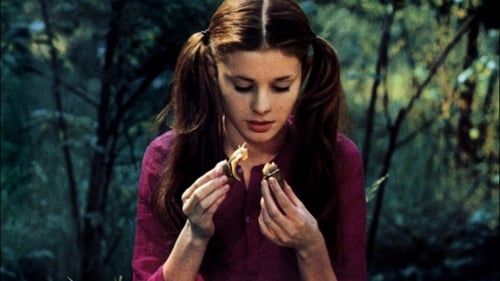
Director of Photography
The premise deals with a family living in a country-house which turns out to be 'alive' – to the point where a TV crew is brought in to 'capture' the paranormal phenomena

Director of Photography
Faustine suffers the wounds of first love. During a summer when she is staying with her grandmother, she comes to know the nearby neighbors. Two brothers live in the large house. One is divorced and one has recently remarried, both of them live there with their teenaged and adult children. Though the boys of the household are drawn to Faustine, she grows ever more smitten with the divorced older man...
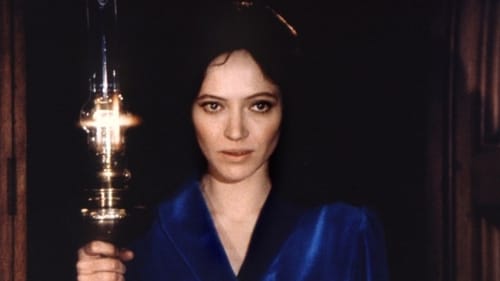
Director of Photography
In 1917, the First World War is raging. Julien is from Luxemburg, so instead of having to go to war he studies piano in Paris. One day his friend Jacques, also a musician and now a fighter pilot on the front, invites him to spend a few days in his family's empty house in Bray. The housekeeper, a beautiful stoic woman lets Julien in, but his friend is late and he is obliged to wait. In the meantime, he starts reminiscing of the pre-war days spent with his friend and Jacques' girlfriend Odile.

A film by Yvan Lagrange.

Director of Photography
The whole film takes place in a single room where representatives of the two political forces and their enemy "the Jew" are gathered. A female character establishes the dialogue between these individuals and comments on the ideology of each; Until the final scene where everyone seems to rally to a common idea.

Director of Photography
A fake documentary on the life forms of the Paris Suburbs, viewed through the eyes of homeless, unemployed people the sharks of politics and building societies push to hopeless life.
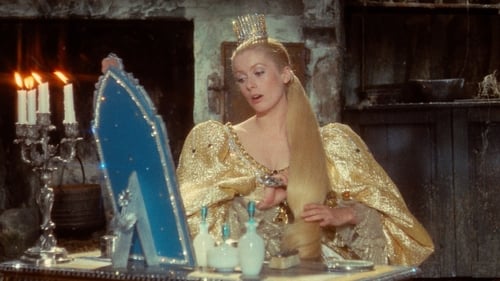
Director of Photography
A fairy godmother helps a princess disguise herself so she won't have to marry her father.

Director of Photography
Julien, a renowned geologist, lives with his wife Isabelle and their two children in a country house. But his sullen, uncompromising attitude leaves tensions high. The arrival of Carl-Stephane, a young German student, brings a breath of fresh air and lightness to the household.

Director of Photography
When his young wife commits suicide with no explanation, an introspective pawnbroker looks back on their life together.

Director of Photography
An interview with film director Josef von Sternberg, produced for Belgium television.

Director of Photography
The Belgian linguistics professor Matthias is going through a difficult period in relations with his girlfriend Anne. She is French, he is Belgian, and, oddly enough for an enlightened Europe and a doubly enlightened university environment, this small difference is a shadow on the couple’s personal life. One day, during a train ride, Anne disappears and Mathias goes looking for her in an unknown city.

Director of Photography
Claude and Isabella met on a beach one summer and got easily involved. But while he has dreams of settling down with a family, she just wants to have fun. When Isabelle becomes pregnant, Claude is advised by both families to marry but things get more complicated when he meets an English woman.
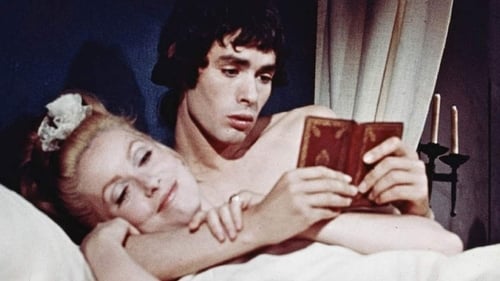
Director of Photography
Set in 18th century France, a naive 17-year-old orphan named Benjamin is taken in by his wealthy aunt, the Countess de Valandry. There, he is seduced by a variety of women, including a few flirtatious maidservants and neighboring countesses who all want to be Benjamin's "first".

Director of Photography
A young girl living in the French countryside suffers constant indignities at the hand of alcoholism and her fellow man.

Director of Photography
Delphine and Solange are two sisters living in Rochefort. Delphine is a dancing teacher and Solange composes and teaches the piano. Maxence is a poet and a painter. He is doing his military service. Simon owns a music shop, he left Paris one month ago to come back where he fell in love 10 years ago. They are looking for love, looking for each other, without being aware that their ideal partner is very close...
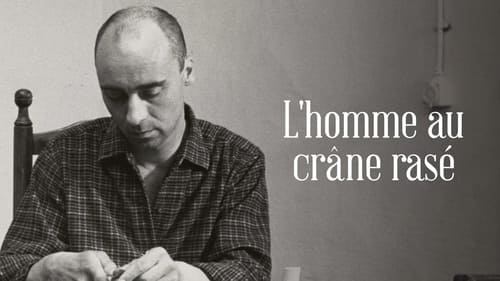
Director of Photography
Govert Miereveld is a lawyer from a small Flemish town who also teaches in a school for girls. He harbors a secret love for one of his young students, Fran, whom he loses touch with after her graduation. Some time later, Miereveld has to attend an autopsy, and the shock of the experience deeply affects his mental balance. He finds out - or he believes so - that Fran has become a popular singer. He arranges to meet her to finally reveal his feelings. An ambiguous but perhaps tragic denouement follows which might be a figment of the protagonist's disturbed mind.
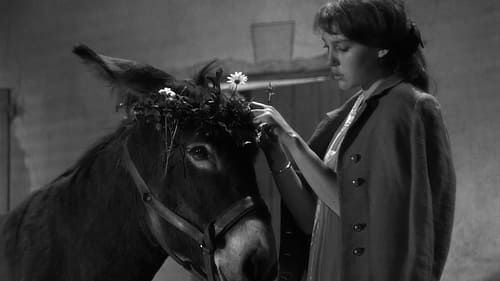
Director of Photography
The story of a donkey Balthazar as he is passed from owner to owner, some kind and some cruel but all with motivations beyond his understanding. Balthazar, whose life parallels that of his first keeper, Marie, is truly a beast of burden, suffering the sins of humankind. But despite his powerlessness, he accepts his fate nobly.
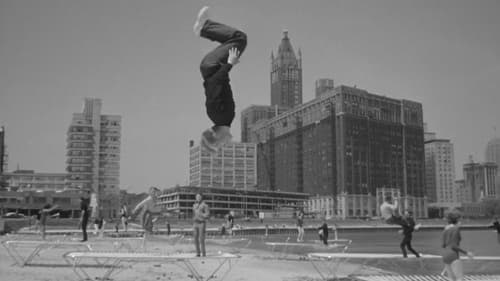
Director of Photography
A former comic is on the run from the mob.

Director of Photography
The Chicken [Le Poulet] is a 1965 French short comedy film directed by Claude Berri. The film follows a father, mother, and son who go to visit a chicken farm. The son catches and brings home a chicken. The father plans to eat it if the chicken doesn't lay eggs. The boy aims to save the chicken and comedy ensues. It won an Oscar in 1966 for Best Short Subject.
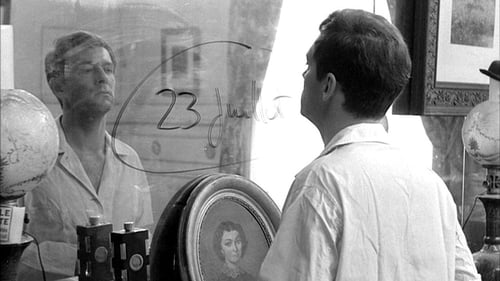
Director of Photography
Although his alcoholism has been treated, Alain still feels he is deeply unwell and does not feel he can leave the detoxification clinic once and for all. His wife, living in New York, continues to pay for his treatment, but no longer contacts him directly. He intends to commit suicide, but first takes a ride to Paris to catch up with old friends.
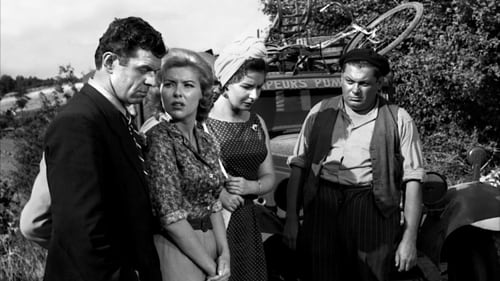
Director of Photography
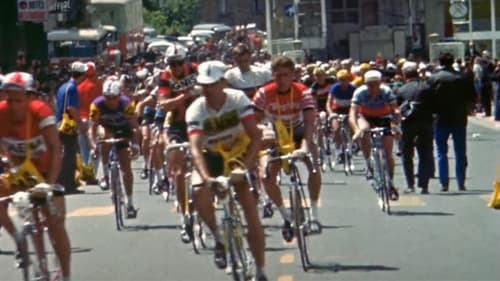
Director of Photography
A short documentary about the 1962 Tour-de-France. Topics covered include: crowds of people and motorcycles, drinking raids and feeding, pileups, doping, "the charge," and the mountain stages.
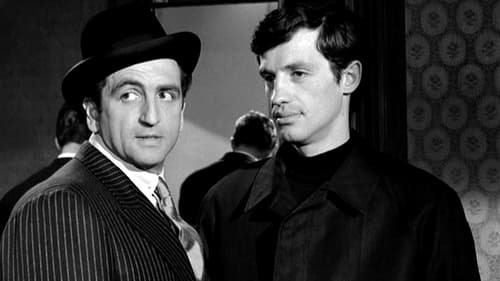
Director of Photography
Roberto goes to Marseilles to give a hand to his friend Xavier, wrongly imprisoned following a frame-up organized by his associate Villanova. Roberto sets out to seduce Villanova's mistress, but when Villanova is killed, Roberto ends up leader of the band...
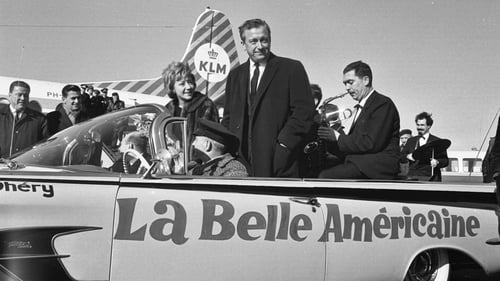
Director of Photography
Marcel, a simple-minded factory worker, is tricked into buying a high-priced American convertable car by a widow determined not to let it fall into the hands of her late husband's secretary/secret lover. Once in pocession of the car, Marcel only encounters one bad luck episode after another with the excessive gasoline consumtion, his wife trying to sell it to make ammends meet, getting into traffic jams, accidently riding into a car wash with the top down, and more

Director of Photography
Working primarily in the arena of nonfiction, Marker rejected conventional narrative techniques, instead staking out a deeply political terrain defined by the use of still images, atmospheric soundtracks, and literate commentary. In Description d’un Combat, Marker’s idiosyncratic style, combining location footage with archival material, builds a complex and personal portrayal. Israel’s demography is explored, from the kibbutzim to the Arab minorities, the orthodox Jews, and the tourists. The “battle” of the title does not refer to the tank-and-artillery variety, but to the inner struggle of Israeli citizens to adapt to a new view of themselves, in a new country.
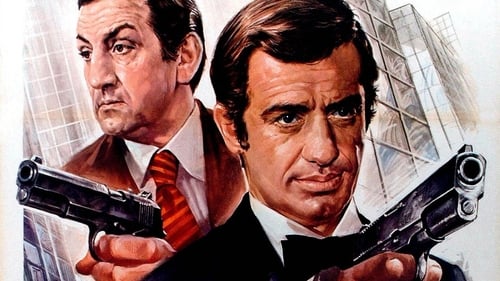
Director of Photography
On crowded Milan streets, two men execute a split-second payroll heist-in broad daylight-then begin a lightning-paced getaway, via every conveyance available. But after all, when a tough guy's returning to France (where he's been sentenced to death in absentia) after holing up in Italy for nearly a decade, he's got to have some startup money--particularly if he's going back with the wife and kids.

Director of Photography
Four prison inmates have been hatching a plan to literally dig out of jail when another prisoner, Claude Gaspard, is moved into their cell. They take a risk and share their plan with the newcomer. Over the course of three days, the prisoners and friends break through the concrete floor using a bed post and begin to make their way through the sewer system -- yet their escape is anything but assured.

Director of Photography
Steph, Jean-Claude and Jacques work in a Parisian art shop, but they mainly work in the field of eroticism, which they conceive as a wide-ranging field of exercises and experiments.

Director of Photography
A professor experimenting in suspended animation accidentally shrinks his dog and later, his female lab assistant, when she drinks the liquid by accident and shrinks to 3 inches tall. The professor keeps her in his pocket until he can find an antidote. Sometimes she's naked, too.

Director of Photography
A documentary film about occupational diseases shot in 1957 at the Francolor factory in Oissel. It takes the form of a scientific investigation to discover the origin of a mysterious illness that has infected a worker at the factory.
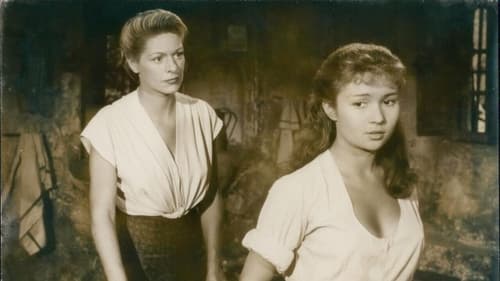
Camera Operator
On a farm ,a handsome man woos three attractive women and sows discord among them.
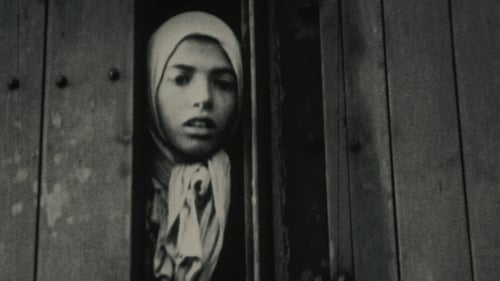
Director of Photography
Filmmaker Alain Resnais documents the atrocities behind the walls of Hitler's concentration camps.

Cinematography
Toute la mémoire du monde is a documentary about the Bibliothèque Nationale in Paris. It presents the building, with its processes of cataloguing and preserving all sorts of printed material, as both a monument of cultural memory and as a monstrous, alien being.

Director of Photography

Cinematography
Short documentary ordered by the magazine "Présence Africaine". From the question "Why is the african in the Human museum while Greek or Egyptian art are in Le Louvre?", the two directors expose and criticise the lack of consideration for African art. The film was censored in France for eight years because of its anti-colonial perspective.

Director
Short documentary ordered by the magazine "Présence Africaine". From the question "Why is the african in the Human museum while Greek or Egyptian art are in Le Louvre?", the two directors expose and criticise the lack of consideration for African art. The film was censored in France for eight years because of its anti-colonial perspective.

































